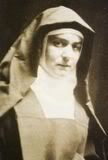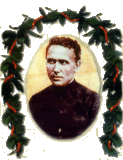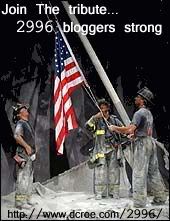

Name~ Hokule'a Kealoha
Short Bio~Hokule'a Kealoha is the Nom De Plume of a writer that formerly lived in Hawaii and is now living a life of adventure on the highways and byways of the American South . I am a Born Again follower of Jesus, as well as a wife, mother of cats and dogs,jeweler, entreprenuer, photographer and pilgrim...
Age~ Old enough to know better
Status~ Newly Single after 13 years of marriage,fur mom to the loving and devoted mini ShihTzu doggie Annabelle, born 6-11-2007 RIP 2-25-09, and the beautiful Abigail born 2-14-09
Hair Color~ natural brown/grey
Mood~ I ALWAYS have a mood, try me...
Loving~ Jesus, Hawaii, my furry friend, Abigail, my Pen Pals, Jewelry ,Blogging ,Writing anything,my Ipod,and being outdoors surrounded by my wonderful natural surroundings
Hating~ Boom Box Cars, Earspray, Abuse of Power,
Reading~
Bible
Magnificat
Link
Link
Underwired! Louisville's magazine for Women
In Store~The Magazine for the American Jeweler
Books in Progress...
CATECHISM OF THE CATHOLIC CHURCH
"Link"
"Link"
Just Finished Reading
"Link"
Link
Link
Link
Jesus, Divine Mercy ~

I Trust In You~
My Favorite Past Posts~Relive The Journey!~
2009~
Link
Link
Link
Link
Link
Link
Link
Link
2008~
Be Thankful
Colateral Damage
Make Lemonade
Home Is Where The Heart Is
The Poor With Us
Because Its The Hardest Thing I Can Do
We Have All Become Victims
Lest I Forget
The Most Important Words
Family Values
Familiar Places
May Perpetual Light Shine On Them
A City In Motion
2007~
The Quiet Storm
Fellowship of the Cane
Like Dead Unremembered: A 9-11 Tribute
The Medicine Machine
One Giant Leap
In The Steps of St. Francis
Too Much Information
The Un Choice
2006~
The Holly and the Ivy
The First 9-11, Dec 7,1941
Small Moments of Silence
Peaches to Winnipeg
Dreaming of Hawaii
Memorial Day
Scattered Values
The White Line is the Lifeline for the Nation
Warnings of a New Civil War
I Will Be True To The Promise I Have Made
The Snowy Bloody Day
Cats in the Cradle
2005~
The Journey
Rebirth of a City
For Posterity's Sake
The New Civil War
Every Mother's Son
And There You Stayed, Temporarily Lost at Sea
The Lone Rider
The Bible Is Not the Fourth Member of the Trinity
Rome Wasn't Built With Union Labor
Happy Birthday Mom ~revised~
A Beautiful Noise
Even Now
The Wearing of the Red
Night Ranger
The Joyful Traveler
Hoiliili "To Gather Up"
Ke Makakilo (My Observations)
He Giveth Sleep
Save The Children
2004~
Lux Aeterna
December 2004
You're Joking, Right?
Ground Zero
I Am Not A Failure
O,To Grace, How Great A Debtor
Lost In Translation
One Small Step for Man
The Rainbow's End
Profanity
Taps
The Journey
Makoa's Song
No Aloha For The Weakest
The Paradoxical Comandments
The Time Is Now
2003~
When No Fruit Is On The Vine


St. Edith Stein~Pray for Us
Religion Link List~
My Secret is Mine
Ignatius Insight-Online Magazine
Fr John Corapi SOLT
Dr. Scott Hahn St Paul Center
Fr. Mitch Pacwa~ Ignatius Productions
Link
Link
Link
Link
Link
Political Link List~
Link
Link
Link
link
Arkansas Link List~
Little Portion Hermitage
John Michael Talbot website
John Michael Talbot Myspace page
1st United Methodist Church Bella Vista
Northwest Arkansas Guide
Mimi's Cafe
Metro Woman Business Directory of NW Arkansas
River Grille
Link
Link
Link
Interactive Links~
Live WebCam Feed from the Mauna Lani Resort, Kohalla, Big Island of Hawaii
Click here for Aloha Joe!Live Hawaiian Music 24/7

St. Damien of Molokai'i, Patron of Hawaii and the Outcasts among us, pray for us....

Hawaii Links~ ~
For more Hawaii links Click Here
Volcano Updates (Pele's Mood Meter)Hawaii Volcano Observatory
Hawaii Volcanoes National Park
Volcano Watch Archives
Mauna Kea Observatory
Pacific Tsunami Museum
Link
Link
Link
Link
Technorotica for Blogging~




Who Links Here...Click here to see who's linking to this site. Powered by WhoLinksToMe.com
Globe of Blogs~Blog search engine
The Blog Search Engine
stock xchng
Photobucket
BlogSkins
Link
Wikipedia
Nuzio's Place on the Web
Commutefaster.com
PING ME!
MWBS Wordpress Edition
Link
Technorotica for Jewelers, and the Jewelry Trade~
Gemological Institute of America
The Drouhard National Jewelers School
The Conner School
Link
Link
|
May 31, 2004
Decoration Day
May 30 was set aside as Decoration Day, a day to tend the graves of the dead of the Civil War, or as we say "The War Between the States" I found a on line copy of Sarah Orne Jewett's short story, "Decoration Day". Written in 1892 for Harper's Magazine, It gives us a glimpse into life at the turn of that century,and a simplier more honest time. The data base is not allowing me to link so I have copied the story into the blog. Its a tad long but I think its worthwile to see how all of this got started, our celebration of those that gave their all for freedom's sake...
Jewett, Sarah Orne. Decoration Day
Electronic Text Center, University of Virginia Library
I.
A WEEK before the 30th of May, three friends -- John Stover and Henry Merrill and Asa Brown -- happened to meet on Saturday evening at Barton's store at the Plains. They were enjoying this idle hour after a busy week. After long easterly rains, the sun had at last come out bright and clear, and all the Barlow farmers had been planting. There was even a good deal of ploughing left to be done, the season was so backward.
The three middle-aged men were old friends. They had been school-fellows, and when they were hardly out of their boyhood the war came on, and they enlisted in the same company, on the same day, and happened to march away elbow to elbow. Then came the great experience of a great war, and the years that followed their return from the South had come to each almost alike. They might have been members of the same rustic household, they knew each other's history so well.
They were sitting on a low wooden bench at the left of the store door as you went in. People were coming and going on their Saturday night errands -- the post-office was in Barton's store -- but the friends talked on eagerly, without interrupting themselves, except by an occasional nod of recognition. They appeared to take no notice at all of the neighbors whom they saw oftenest. It was a most beautiful evening; the two great elms were almost half in leaf over the blacksmith shop which stood across the wide road. Farther along were two small old-fashioned houses and the old white church, with its pretty belfry of four arched sides and a tiny dome at the top. The large cockerel on the vane was pointing a little south of west, and there was still light enough to make it shine bravely against the deep blue eastern sky. On the western side of the road, near the store, were the parsonage and the storekeeper's modern house, which had a French roof and some attempt at decoration, which the long-established Barlow people called gingerbread-work, and regarded with mingled pride and disdain. These buildings made the tiny village called Barlow Plains. They stood in the middle of a long narrow strip of level ground. They were islanded by green fields and pastures. There were hills beyond; the mountains themselves seemed very near. Scattered about on the hill slopes were farm-houses, which stood so far apart, with their clusters of out-buildings, that each looked lonely, and the pine woods above seemed to besiege them all. It was lighter on the uplands than it was in the valley where the three men sat on their bench, with their backs to the store and the western sky.
"Well, here we be 'most into June, an'
I ain't got a bush bean aboveground," lamented Henry Merrill.
"Your land's always late, ain't it? But you always catch up with the rest on us," Asa Brown consoled him. "I've often observed that your land, though early planted, is late to sprout. I view it there's a good week's difference betwixt me an' Stover an' your folks, but come 1st o' July we all even up."
"'Tis just so," said John Stover, taking his pipe out of his mouth, as if he had a good deal more to say, and then replacing it, as if he had changed his mind.
"Made it extry hard having that long wet spell. Can't none on us take no day off this season," said Asa Brown; but nobody thought it worth his while to respond to such evident truth.
"Next Saturday'll be the 30th o' May -- that's Decoration day, ain't it? -- come round again. Lord! how the years slip by after you git to be forty-five an' along there!" said Asa again. "I s'pose some o' our folks'll go over to Alton to see the procession, same's usual. I've got to git one o' them small flags to stick on our Joel's grave, an' Mis' Dexter always counts on havin' some for Harrison's lot. I calculate to get 'em somehow. I must make time to ride over, but I don't know where the time's comin' from out o' next week. I wish the women folks would tend to them things. There's the spot where Eb Munson an' John Tighe lays in the poor-farm lot, an' I did mean certain to buy flags for 'em last year an' year before, but I went an' forgot it. I'd like to have folks that rode by notice 'em for once, if they was town paupers. Eb Munson was as darin' a man as ever stepped out to tuck o' drum."
"So he was," said John Stover, taking out his pipe with decision and knocking out the ashes. "Drink was his ruin; but I wa'n't one that could be harsh with Eb, no matter what he done. He worked hard long's he could, too; but he wa'n't a like a sound man, an' I think he took somethin' first not so much 'cause he loved it, but to kind of keep his strength up so's he could work, an' then, all of a sudden, rum clinched with him an' threw him. Eb was talkin' 'long o' me one day when he was about half full, an' says he, right out, 'I wouldn't have fell to this state,' says he, 'if I'd had me a home an' a little fam'ly; but it don't make no difference to nobody, and it's the best comfort I seem to have, an' I ain't goin' to do without it. I'm ailin' all the time,' says he, 'an' if I keep middlin' full, I make out to hold my own an' to keep along o' my work.' I pitied Eb. I says to him, 'You ain't goin' to bring no shame on us old army boys, be you, Eb? An' he says no, he wa'n't. I think if he'd lived to get one o' them big fat pensions, he'd had it easier. Eight dollars a month paid his board, while he'd pick up what cheap work he could, an' then he got so that decent folks didn't seem to want the bother of him, an' so he come on the town."
"There was somethin' else to it," said Henry Merrill, soberly. "Drink come natural to him, 'twas born in him, I expect, an' there wa'n't nobody that could turn the divil out same's they did in Scriptur'. His father an' his gran'father was drinkin' men; but they was kind-hearted an' good neighbors, an' never set out to wrong nobody. 'Twas the custom to drink in their day; folks was colder an' lived poorer in early times, an' that's how most of 'em kept a-goin'. But what stove Eb all up was his disapp'intment with Marthy Peck -- her forsakin' of him an' marryin' old John Down whilst Eb was off to war. I've always laid it up ag'inst her."
"So've I," said Asa Brown. "She didn't use the poor fellow right. I guess she was full as well off, but it's one thing to show judgment, an' another thing to have heart."
There was a long pause; the subject was too familiar to need further comment.
"There ain't no public sperit here in Barlow," announced Asa Brown, with decision. "I don't s'pose we could ever get up anything for Decoration day. I've felt kind of 'shamed, but it always comes in a busy time; 'twa'n't no time to have it, anyway, right in late plantin'."
"'Tain't no use to look for public sperit 'less you've got some yourself," observed John Stover, soberly; but something had pleased him in the discouraged suggestion. "Perhaps we could mark the day this year. It comes on a Saturday; that ain't nigh so bad as bein' in the middle of the week."
Nobody made any answer, and presently he went on:
"There was a time along back when folks was too near the war-time to give much thought to the bigness of it. The
best fellows was them that had staid to home an' worked their trades an' laid up money; but I don't know 's it's so now."
"Yes, the fellows that staid at home got all the fat places, an' when we come back we felt dreadful behind the times," grumbled Asa Brown. "I remember how 'twas."
"They begun to call us hero an' old stick-in-the-mud just about the same time," resumed Stover, with a chuckle. "We wa'n't no hand for strippin' woodland nor tradin' hosses them first few years. I don' know why 'twas we were so beat out. The best most on us could do was to sag right on to the old folks. Father he never wanted me to go to the war -- 'twas partly his Quaker breed -- an' he used to be dreadful mortified with the way I hung round down here to the store an' loafed round a-talkin' about when I was out South, an' arguin' with folks that didn't know nothin' about what the generals done. There! I see me now just as he see me then; but after I had my boy strut out, I took holt o' the old farm 'long o' father, an' I've made it bounce. Look at them old meadows an' see the herds' grass that come off of 'em last year! I ain't ashamed o' my place, if I did go to the war."
"It all looks a sight bigger to me now than it did then," said Henry Merrill. "Our goin' to the war I refer to. We didn't sense it no more than other folks did. I used to be sick o' hearin' their stuff about patriotism an' lovin' your country, an' them pieces o' poetry women-folks wrote for the papers on the old flag, an' our fallen heroes, an' them things; they didn't seem to strike me in the right place; but I tell ye it kind o' starts me now every time I come on the flag sudden -- it does so. A spell ago -- 'long in the fall, I guess it was -- I was over to Alton tradin', an' there was a fire company paradin'. They'd got a prize at a fair, an' had just come home on the cars, an' I heard the band; so I stepped to the front o' the store where me an' my woman was, an' the company felt well, an' was comin' along the street 'most as good as troops. I see the old flag a-comin', kind of blowin' back, an' it went all over me. Somethin' worked round in my throat; I vow I come near cryin'. I was glad nobody see me."
"I'd go to war again in a minute," declared Stover, after an expressive pause; "but I expect we should know better what we was about. I don' know but we've got too many rooted opinions now to make us the best o' soldiers."
"Martin Tighe an' John Tighe was considerable older than the rest, and they done well," answered Henry Merrill, quickly. "We three was the youngest of any, but we did think at the time we knew the most."
"Well, whatever you may say, that war give the country a great start," said Asa Brown. "I tell ye we just begin to see the scope on't. There was my cousin, you know, Dan'l Evans, that stopped with us last winter; he was tellin' me that one o' his coastin' trips he was into the port o' Beaufort lo'din' with yaller-pine lumber, an' he was into an old buryin'-ground there is there, an' he see a stone that had on it some young Southern fellow's name that was killed in the war, an' under it, 'He died for his country.' Dan'l knowed how I used to feel about them South Car'lina goings on, an' I did feel kind o' red an' ugly for a minute, an' then somethin' come over me, an' I says, 'Well, I don't know but what the poor chap did, Dan Evans, when you come to view it all round.'"
The other men made no answer.
"Le's see what we can do this year. I don't care if we be a poor han'ful," urged Henry Merrill. "The young folks ought to have the good of it; I'd like to have my boys see somethin' different. Le's get together what men there is. How many's left, anyhow? I know there was thirty-seven went from old Barlow, three-month men an' all."
"There can't be over eight, countin' out Martin Tighe; he can't march," said Stover. "No, 'tain't worth while." But the others did not notice his disapproval.
"There's nine in all," announced Asa Brown, after pondering and counting two or three times on his fingers. "I can't make us no more. I never could carry figgers in my head."
"I make nine," said Merrill. "We'll have Martin ride, an' Jesse Dean too, if he will. He's awful lively on them canes o' his. An' there's Jo Wade -- with his crutch; he's amazin' spry for a short distance. But we can't let 'em go afoot; they're decripped men. We'll make 'em all put on what they've got left o' their uniforms, an' we'll scratch round an' have us a fife an' drum, an' make the best show we can."
"Why, Martin Tighe's boy, the next
to the oldest, is an excellent hand to play the fife!" said John Stover, suddenly growing enthusiastic. "If you two are set on it, let's have a word with the minister to-morrow, an' see what he says. Perhaps he'll give out some kind of a notice. You have to have a good many bunches o' flowers. I guess we'd better call a meetin', some few on us, an' talk it over first o' the week. 'Twouldn't be no great of a range for us to take to march from the old buryin'-ground at the meetin'-house here up to the poor-farm an' round by Deacon Elwell's lane, so's to notice them two stones he set up for his boys that was sunk on the man-o'-war. I expect they notice stones same's if the folks laid there, don't they?"
He spoke wistfully. The others knew that Stover was thinking of the stone he had set up to the memory of his only brother, whose nameless grave had been made somewhere in the Wilderness.
"I don't know but what they'll be mad if we don't go by every house in town," he added, anxiously, as they rose to go home. "'Tis a terrible scattered population in Barlow to favor with a procession."
It was a mild starlit night. The three friends took their separate ways presently, leaving the Plains road and crossing the fields by foot-paths toward their farms.
--------------------------------------------------------------------------------
II.
The week went by, and the next Saturday morning brought fair weather. It was a busy morning on the farms -- like any other; but long before noon the teams of horses and oxen were seen going home from work in the fields, and everybody got ready in haste for the great event of the afternoon. It was so seldom that any occasion roused public interest in Barlow that there was an unexpected response, and the green before the old white meeting-house was covered with country wagons and groups of people, whole families together, who had come on foot. The old soldiers were to meet in the church; at half past one the procession was to start, and on its return the minister was to make an address in the old burying-ground. John Stover had been a lieutenant in the army, so he was made captain of the day. A man from the next town had offered to drum for them, and Martin Tighe's proud boy was present with his fife. He had a great longing -- strange enough in that peaceful sheep-raising neighborhood -- to go into the army; but he and his elder brother were the mainstay of their crippled father, and he could not be spared from the large household until a younger brother could take his place; so that all his fire and military zeal went for the present into martial tunes, and the fife was the safety-valve for his enthusiasm.
The army men were used to seeing each other; everybody knew everybody in the little country town of Barlow; but when one comrade after another appeared in what remained of his accoutrements, they felt the day to be greater than they had planned, and the simple ceremony proved more solemn than any one expected. They could make no use of their everyday jokes and friendly greetings. Their old blue coats and tarnished army caps looked faded and antiquated enough. One of the men had nothing left but his rusty canteen and rifle; but these he carried like sacred emblems. He had worn out all his army clothes long ago, because when he was discharged he was too poor to buy any others.
When the door of the church opened, the veterans were not abashed by the size and silence of the crowd. They came walking two by two down the steps, and took their places in line as if there were nobody looking on. Their brief evolutions were like a mystic rite. The two lame men refused to do anything but march, as best they could; but poor Martin Tighe, more disabled than they, was brought out and lifted into Henry Merrill's best wagon, where he sat up, straight and soldierly, with his boy for driver. There was a little flag in the whip socket before him, which flapped gayly in the breeze. It was such a long time since he had been seen out-of-doors that everybody found him a great object of interest, and paid him much attention. Even those who were tired of being asked to contribute to his support, who resented the fact of his having a helpless wife and great family; who always insisted that with his little pension and hopeless lameness, his fingerless left hand and failing sight, he could support himself and his household if he chose -- even those persons came forward now to greet him handsomely and with large approval. To be sure, he enjoyed the conversation of idlers, and his wife had a complaining way that was the same as begging, especially since her boys began
to grow up and be of some use; and there were one or two near neighbors who never let them really want; so other people, who had cares enough of their own, could excuse themselves for forgetting him the year round, and even call him shiftless. But there were none to look askance at Martin Tighe on Decoration day, as he sat in the wagon, with his bleached face like a captive's, and his thin, afflicted body. He stretched out his whole hand impartially to those who had remembered him and those who had forgotten both his courage at Fredericksburg and his sorry need in Barlow.
Henry Merrill had secured the engine company's large flag in Alton, and now carried it proudly. There were eight men in line, two by two, and marching a good bit apart, to make their line the longer. The fife and drum struck up gallantly together, and the little procession moved away slowly along the country road. It gave an unwonted touch of color to the landscape -- the scarlet, the blue, between the new-ploughed fields and budding road-side thickets, between the wide dim ranges of the mountains, under the great white clouds of the spring sky. Such processions grow more pathetic year by year; it will not be so long now before wondering children will have seen the last. The aging faces of the men, the renewed comradeship, the quick beat of the hearts that remember, the tenderness of those who think upon old sorrows -- all these make the day a lovelier and a sadder festival. So men's hearts were stirred, they knew not why, when they heard the shrill fife and the incessant drum along the quiet Barlow road, and saw the handful of old soldiers marching by. Nobody thought of them as familiar men and neighbors alone -- they were a part of that army which saved its country. They had taken their lives in their hands and gone out to fight -- plain John Stover and Jesse Dean and the rest. No matter if every other day in the year they counted for little or much, whether they were lame-footed and despised, whether their farms were of poor soil or rich.
The little troop went in slender line along the road; the crowded country wagons and all the people who went afoot followed Martin Tighe's wagon as if it were a great gathering at a country funeral. The route was short, and the long straggling line marched slowly; it could go no faster than the lame men could walk.
In one of the houses by the road-side an old woman sat by a window, in an old-fashioned black gown, and clean white cap with a prim border which bound her thin sharp features closely. She had been for a long time looking out eagerly over the snowberry and cinnamon-rose bushes; her face was pressed close to the pane, and presently she caught sight of the great flag.
"Let me see 'em! I've got to see 'em go by!" she pleaded, trying to rise from her chair alone when she heard the fife, and the women helped her to the door, and held her so that she could stand and wait. She had been an old woman when the war began; she had sent two sons and two grandsons to the field; they were all gone now. As the men came by, she straightened her bent figure with all the vigor of youth. The fife and drum stopped suddenly; the colors dipped. She did not heed that, but her old eyes flashed and then filled with tears to see the flag going to salute the soldiers' graves. "Thank ye, boys; thank ye!" she cried, in her quavering voice, and they all cheered her. The cheer went back along the straggling line for old Grandmother Dexter, standing there in her front door between the lilacs. It was one of the great moments of the day.
The few old people at the poorhouse, too, were waiting to see the show. The keeper's young son, knowing that it was a day of festivity, and not understanding exactly why, had put his toy flag out of the gable window, and there it showed against the gray clapboards like a gay flower. It was the only bit of decoration along the veterans' way, and they stopped and saluted it before they broke ranks and went out to the field corner beyond the poor-farm barn to the bit of ground that held the paupers' unmarked graves. There was a solemn silence while Asa Brown went to the back of Tighe's wagon, where such light freight was carried, and brought two flags, and he and John Stover planted them straight in the green sod. They knew well enough where the right graves were, for these had been made in a corner by themselves, with unwonted sentiment. And so Eben Munson and John Tighe were honored like the rest, both by their flags and by great and unexpected
nosegays of spring flowers, daffies and flowering currant and red tulips, which lay on the graves already. John Stover and his comrade glanced at each other curiously while they stood singing, and then laid their own bunches of lilacs down and came away.
Then something happened that almost none of the people in the wagons understood. Martin Tighe's boy, who played the fife, had studied well his part, and on his poor short-winded instrument now sounded taps as well as he could. He had heard it done once in Alton at a soldier's funeral. The plaintive notes called sadly over the fields, and echoed back from the hills. The few veterans could not look at each other; their eyes brimmed up with tears; they could not have spoken. Nothing called back old army days like that. They had a sudden vision of the Virginian camp, the hill-side dotted white with tents, the twinkling lights in other camps, and far away the glow of smouldering fires. They heard the bugle call from post to post; they remembered the chilly winter night, the wind in the pines, the laughter of the men. Lights out! Martin Tighe's boy sounded it again sharply. It seemed as if poor Eb Munson and John Tighe must hear it too in their narrow graves.
The procession went on, and stopped here and there at the little graveyards on the farms, leaving their bright flags to flutter through summer and winter rains and snows, and to bleach in the wind and sunshine. When they returned to the church, the minister made an address about the war, and every one listened with new ears. Most of what he said was familiar enough to his listeners; they were used to reading those phrases about the results of the war, the glorious future of the South, in their weekly newspapers; but there never had been such a spirit of patriotism and loyalty waked in Barlow as was waked that day by the poor parade of the remnant of the Barlow soldiers. They sent flags to all the distant graves, and proud were those households who claimed kinship with valor, and could drive or walk away with their flags held up so that others could see that they, too, were of the elect.
--------------------------------------------------------------------------------
III.
It is well that the days are long in the last of May, but John Stover had to hurry more than usual with his evening work, and then, having the longest distance to walk, he was much the latest comer to the Plains store, where his two triumphant friends were waiting for him impatiently on the bench. They also had made excuse of going to the post-office and doing an unnecessary errand for their wives, and were talking together so busily that they had gathered a group about them before the store. When they saw Stover coming, they rose hastily and crossed the road to meet him, as if they were a committee in special session. They leaned against the post-and-board fence, after they had shaken hands with each other solemnly.
"Well, we've had a great day, 'ain't we, John?" asked Henry Merrill. "You did lead off splendid. We've done a grand thing, now, I tell you. All the folks say we've got to keep it up every year. Everybody had to have a talk about it as I went home. They say they had no idea we should make such a show. Lord! I wish we'd begun while there was more of us!"
"That han'some flag was the great feature," said Asa Brown, generously. "I want to pay my part for hirin' it. An' then folks was glad to see poor old Martin made o' some consequence."
"There was half a dozen said to me that another year they're goin' to have flags out, and trim up their places somehow or 'nother. Folks has feelin' enough, but you've got to rouse it," said Merrill.
"I have thought o' joinin' the Grand Army over to Alton time an' again, but it's a good ways to go, an' then the expense has been o' some consideration," Asa continued. "I don't know but two or three over there. You know, most o' the Alton men nat'rally went out in the rigiments t'other side o' the line, an' they was in other battles, an' never camped nowheres nigh us. Seems to me we ought to have home feelin' enough to do what we can right here."
"The minister says to me this afternoon that he was goin' to arrange an' have some talks in the meetin'-house next winter, an' have some of us tell where we was in the South; an' one night 'twill be about camp life, an' one about the long marches, an' then about the battles -- that would take some time -- an' tell all we could about the boys that was killed, an' their record, so they wouldn't be forgot. He said some of the
folks must have the letters we wrote home from the front, an' we could make out quite a history of us. I call Elder Dallas a very smart man; he'd planned it all out a'ready, for the benefit o' the young folks, he said," announced Henry Merrill, in a tone of approval.
"I s'pose there ain't none of us but could add a little somethin'," answered John Stover, modestly. "'Twould re'lly learn the young folks a good deal. I should be scared numb to try an' speak from the pulpit. That ain't what the elder means, is it? Now I had a good chance to see somethin' o' Washin'ton. I shook hands with President Lincoln, an' I always think I'm worth lookin' at for that, if I ain't for nothin' else. 'Twas that time I was just out o' hospit'l, an' able to crawl about some. Well, we'll see how 'tis when winter comes. I never thought I had no gift for public speakin', 'less 'twas for drivin' cattle or pollin' the house town-meetin' days. Here! I've got somethin' in mind. You needn't speak about it if I tell it to ye," he added, suddenly. "You know all them han'some flowers that was laid on to Eb Munson's grave an' Tighe's? I mistrusted you thought the same thing I did by the way you looked. They come from Marthy Down's front yard. My woman told me when we got home that she knew 'em in a minute; there wa'n't nobody in town had that kind o' red flowers but her. She must ha' kind o' harked back to the days when she was Marthy Peck. She must have come with 'em after dark -- or else dreadful early in the mornin'."
Henry Merrill cleared his throat. "There ain't nothin' half-way 'bout Mis' Down," he said. "I wouldn't ha' spoken 'bout this 'less you had led right on to it; but I overtook her when I was gittin' towards home this afternoon, an' I see by her looks she was worked up a good deal; but we talked about how well things had gone off, an' she wanted to know what expenses we'd been put to, an' I told her; an' she said she'd give five dollars any day I'd stop in for it. An' then she spoke right out. 'I'm alone in the world,' says she, 'and somethin' to do with, an' I'd like to have a plain stone put up to Eb Munson's grave, with the number of his rigiment on it, an' I'll pay the bill. 'Tain't out o' Mr. Down's money,' she says; ''tis mine, an' I want you to see to it.' I said I would, but we'd made a plot to git some o' them soldiers' head-stones that's provided by the government. 'Twas a shame it had been overlooked so long. 'No,' says she; 'I'm goin' to pay for Eb's myself.' An' I told her there wouldn't be no objection. Don't ary one o' you speak about it. 'Twouldn't be fair. She was real well-appearin'. I never felt to respect Marthy so before."
"We was kind o' hard on her sometimes, but folks couldn't help it. I've seen her pass Eb right by in the road an' never look at him when he first come home," said John Stover.
"If she hadn't felt bad, she wouldn't have cared one way or t'other," insisted Henry Merrill. "'Tain't for us to judge. Sometimes folks has to get along in years before they see things fair. Come; I must be goin'. I'm tired as an old dog."
"It seemed kind o' natural to be steppin' out together again. Strange we three got through with so little damage, an' so many dropped round us," said Asa Brown. "I've never been one mite sorry I went out in old A Company. I was thinkin' when I was marchin' to-day, though, that we should all have to take to the wagons before long an' do our marchin' on wheels, so many of us felt kind o' stiff. There's one thing -- folks won't never say again that we don't show no public sperit here in old Barlow."
|
|

















 based on design by mela
based on design by mela
